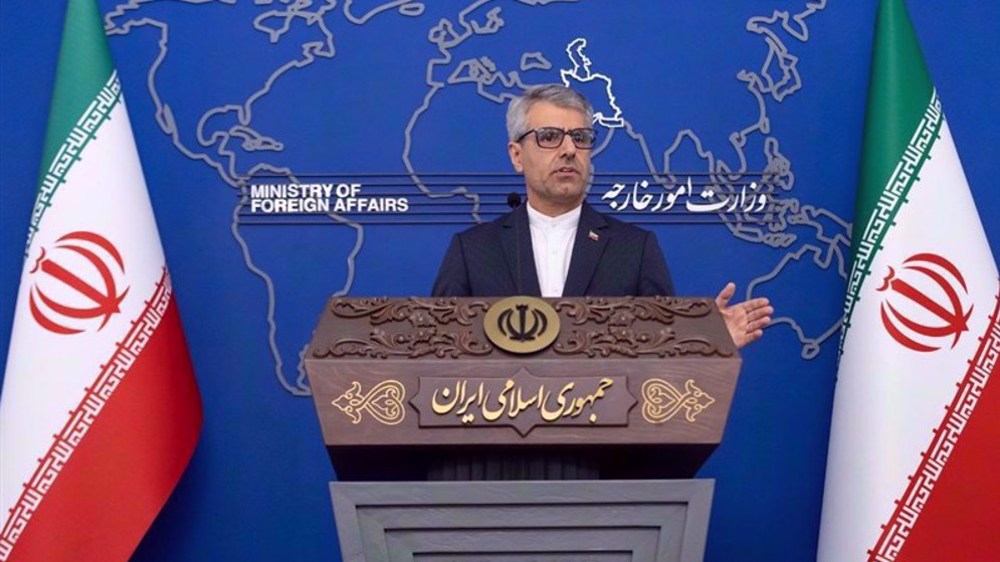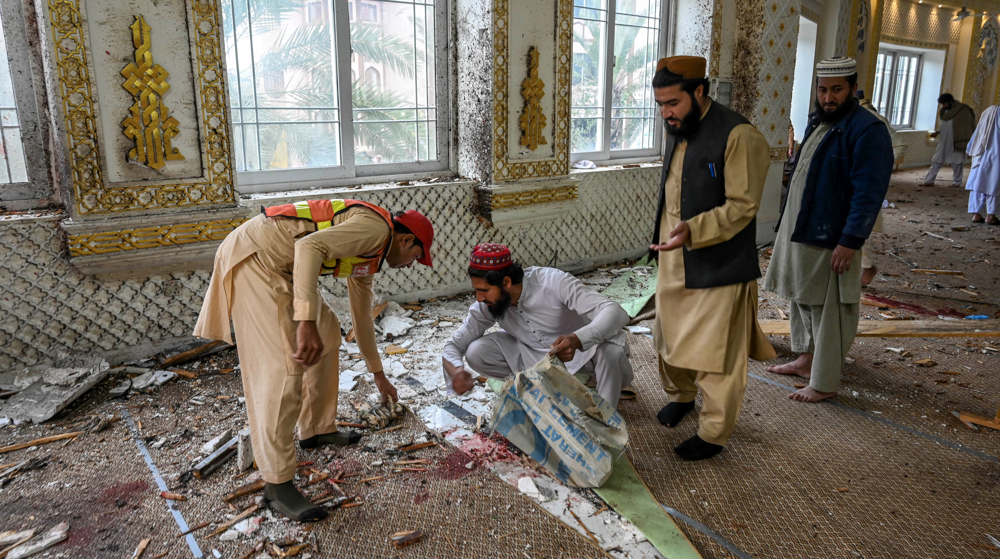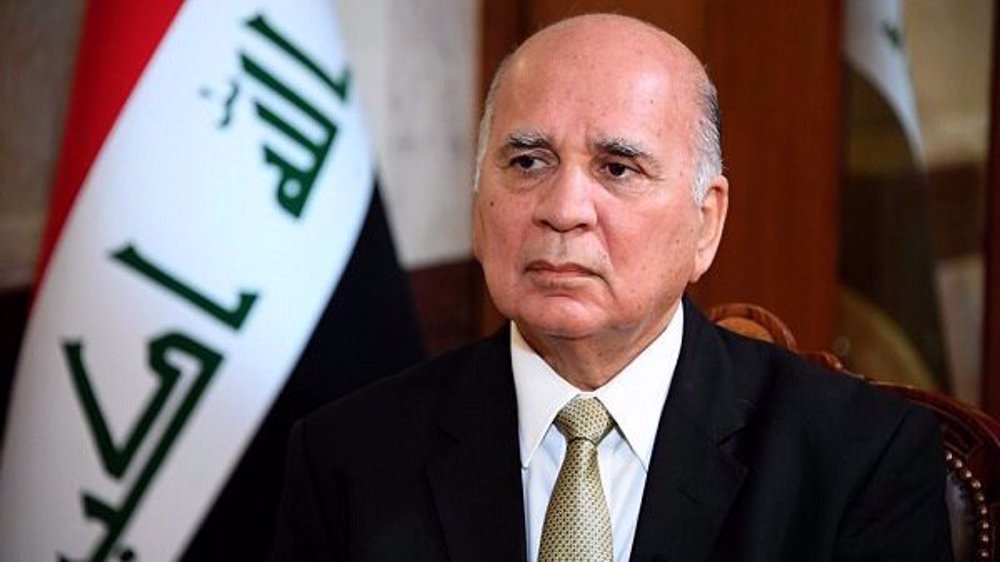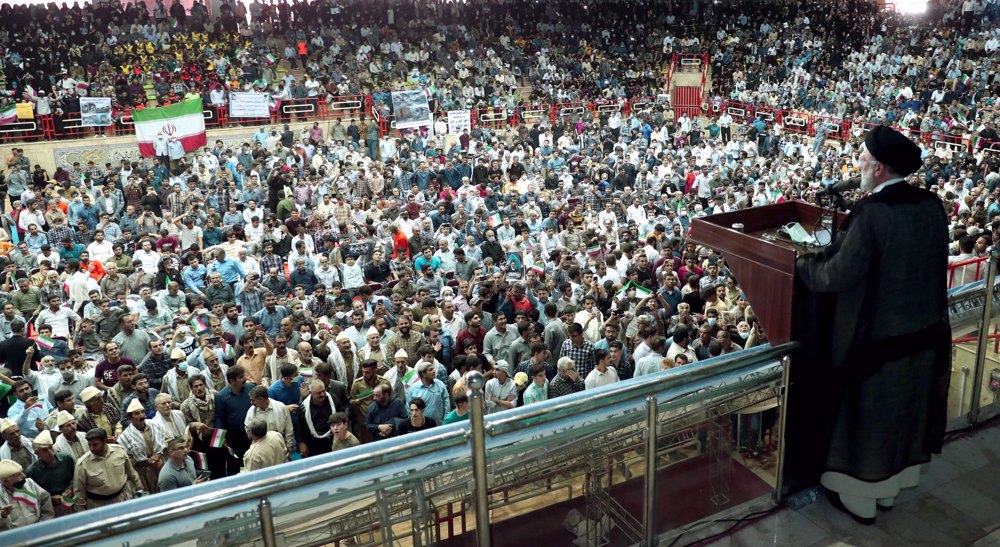In response to Biden's threat, President Raeisi warns any mistake by US, allies to be met with Iran's harsh response
President Ebrahim Raeisi says the Iranian nation cannot condone insecurity and crisis in the region, warning that any mistake by the enemies will be met with a harsh response from the Islamic Republic that will make them rue their acts.
Raeisi made the remarks in a Thursday visit to the western Iranian province of Kermanshah, referring to the hostile and destabilizing activities of the United States and its allies in the region.
"In the gathering of the resistant people of Kermanshah, I say that any mistake by the Americans and their allies in the region and the world will be met with a harsh and regrettable response," he said.
"Today, Islamic Iran is stronger than ever," President Raeisi said, adding the United States on the contrary is weaker than ever.
The president also said, "The great nation of Iran does not accept any kind of insecurity and crisis in the region, and the Muslim nations of the region hate the humiliating relations of their governments with America, which has led to the looting of their country's wealth."
His remarks came a day after US President Joe Biden opened his first visit to the region since taking office by telling Israeli leaders of his determination to confront Iran’s nuclear energy program, saying he’d be willing to use force as a "last resort".
On Thursday, Biden signed a joint strategic declaration with Israeli prime minister Yair Lapid vowing that the US will use “all elements in its national power” to confront Iran's nuclear energy program.
President Raeisi touched on Iran's military power and authority, calling it a security factor in the region and stressing that the Islamic Republic will not accept any insecurity or crisis in the region.
"The Zionist regime should not have a covetous eye on the Middle East and West Asia, and it can never have normal relations in the region," he said.
Raeisi said the Islamic Republic does not see the interference of the US and its allies in the region as anything other than creating a crisis, "because these countries are constantly transiting insecurity and terrorism into the region".
The US president was to spend two days in the occupied territories for talks with Israeli leaders and afterward, he will take a direct flight from Israel to the Saudi Arabian port city of Jeddah on the Red Sea to take part in a summit of Persian Gulf allies.
Biden is scheduled to meet Saudi crown prince Mohammed bin Salman and other regional leaders during the high-profile visit, amid speculation that he will be aggressively pushing for normalization between Riyadh and Tel Aviv.
The United Arab Emirates, Bahrain, Sudan and Morocco in 2020 became the first Arab countries in decades to normalize relations with Israel in a deal brokered by former US President Donald Trump.
Saudi Arabia is yet to jump on the bandwagon, but the two sides have seen growing contacts and de-facto rapprochement in recent years.
In an interview that aired Wednesday, Biden told Israel’s Channel 12 news that the US would walk away from the stalled nuclear talks if returning to the pact was contingent upon removing Iran's Islamic Revolution Guards Corps (IRGC) from its blacklist.
Raeisi said, "We consider the power of the Americans to be weaker today than ever, and as the Westerners themselves say, the policy of maximum pressure against the Islamic Republic by imposing sanctions and threats has failed, and they should not test these policies of the past again."

Iran remains steadfast in its ‘principled positions,’ says Foreign Ministry

Iran condemns deadly bombing in Pakistan, stresses regional unity to fight terror

Iraq asserts commitment to security agreement with Iran
Explainer: How can Iran help South Africa advance its civilian nuclear program?
The importance of creative industry in Iran’s future
Israelis push for Russia to keep Syria bases, want Damascus 'weak, divided': Report
US terminates support for Ukraine energy grid restoration
Israeli soldiers stole ‘mountains’ of cash and gold from Gaza, Lebanon, and Syria: Report
PKK militants declare ceasefire with Turkey to end 40-year bloodshed
VIDEO | largest funeral since 1996 Qana massacre held in Lebanon
Hamas calls on Palestinians to resist Israeli restrictions on al-Aqsa Mosque during Ramadan







 This makes it easy to access the Press TV website
This makes it easy to access the Press TV website